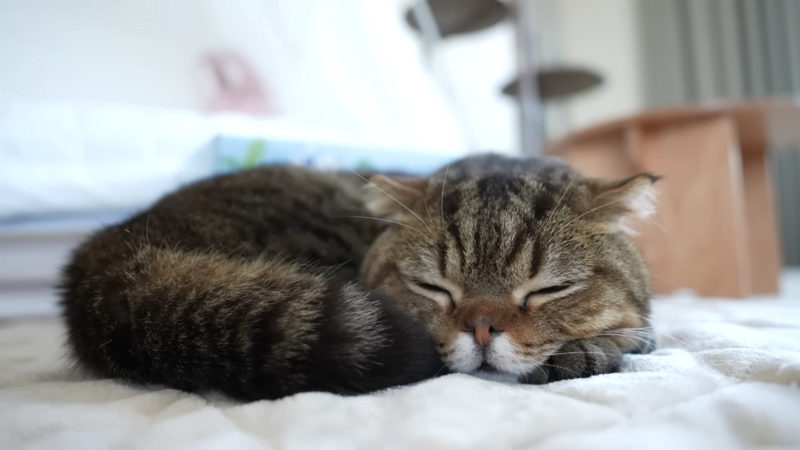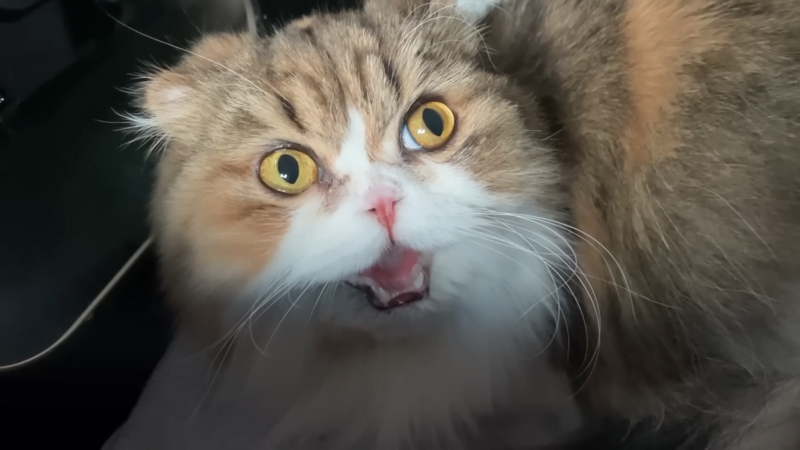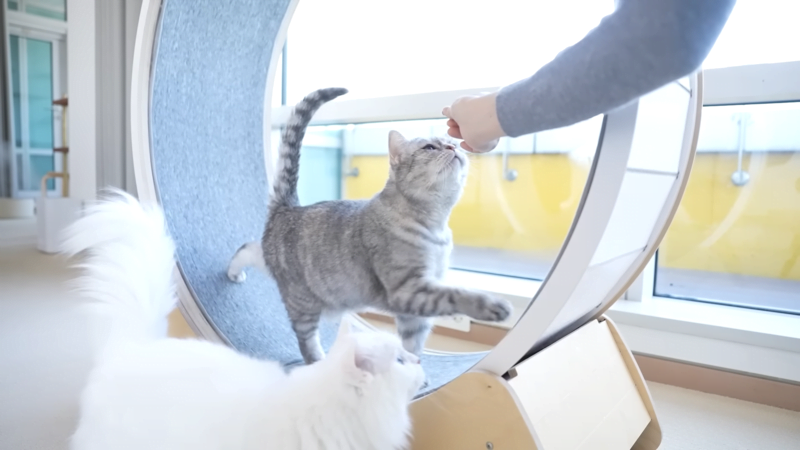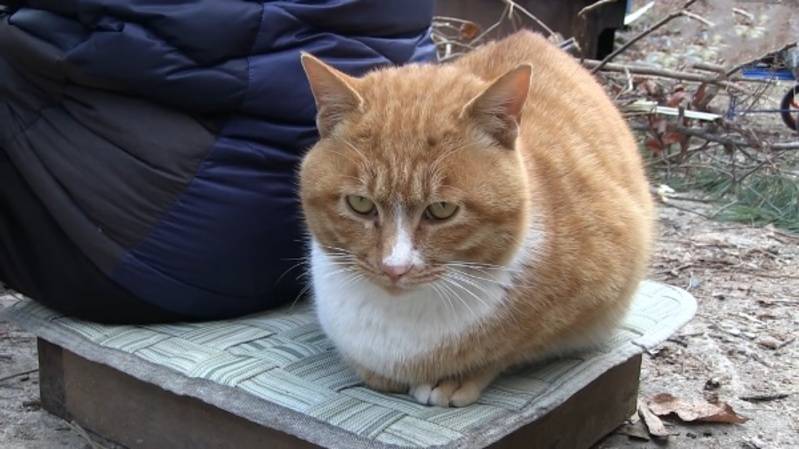No products in the cart.
CBD oil for cats aggression has become a popular topic of discussion among cat owners in recent years. Many people are turning to CBD oil as a possible solution for managing their cats’ aggressive behavior. CBD oil may potentially help reduce aggression in cats by promoting a calming effect on their behavior. In this blog, we will discover the topics of medicine for aggressive cats, natural ways to calm an aggressive cat, and why do cats get aggressive for no reason. We will also share some tips on how do you calm an aggressive cat and protect yourself if an aggressive cat attacks you.
CBD Oil for Cats Aggression
CBD oil has been gaining popularity as a possible solution to managing aggression in cats. CBD oil may potentially help reduce aggression in cats by promoting a calming effect on their behavior. CBD helps stimulate the ECS and potentially provides relief from anxiety and other stressors that may cause aggressive behavior. Find out more about CBD oil products for your cats at Pet CBD Club.

CBD Safety Concerns for Aggressive Cats
Cat CBD appears to be safe for cats when used under a veterinarian’s supervision. The use of CBD oil in a cat’s health regimen should only be done after consulting with a veterinarian because it may interact with prescription drugs that cats frequently take. To further assure your cat’s safety and wellbeing, make sure you use high-quality CBD oil products made especially for cats and carefully follow the dosage recommendations.
Benefits of CBD Work on Cats Aggression
CBD oil for cats may offer several benefits for managing aggression in cats, including:
- Calming Effect: CBD oil has shown promise in promoting a calming effect on cats. CBD interacts with the endocannabinoid system (ECS) in cats, which helps regulate several physiological functions, including mood, appetite, and sleep.
- Stress and Anxiety Relief: CBD oil can help alleviate stress and anxiety in cats by stimulating the ECS, which may help reduce the physiological effects of stress, such as an increased heart rate and blood pressure.
- Fewer Side Effects: Compared to traditional medications used to manage aggression in cats, CBD oil has relatively few side effects. The most common side effects reported in cats are mild and include drowsiness, diarrhea, and vomiting.
- Easy to Administer: CBD oil can be easily administered to cats in various forms, including tinctures, treats, and capsules, making it a convenient option for cat owners.
Medicine for Aggressive Cats
There are drugs out there that can be used to cure cats’ aggression. To address the underlying cause of the aggression, medicines should be used in conjunction with behavior modification strategies and only under the supervision of a veterinarian.
Veterinarians will prescribe sedatives to calm aggressive cats, but it’s crucial to understand that these medications are not a permanent fix. Only specific circumstances or in conjunction with other behavior modification strategies are permitted for their usage. Before giving your cat any sedatives, it is essential to speak with a veterinarian.

Side Effects of Medication for Cat Aggression
Some medications used to treat cat aggression can have side effects, depending on the medication prescribed. Common effects like drowsiness, lethargy, appetite loss, nausea, and diarrhea usually happen. It’s essential to monitor your cat’s behavior and physical condition closely while on medication for aggression.
Cat Aggression Types That Medications May Be Effective For
Medications may not work on all types of cat aggression. For example, medications may not be effective in cases of territorial aggression or fear-based aggression. In order to address the underlying causes of the aggression, drugs should always be used in conjunction with behavior modification strategies and environmental adjustments. For your cat’s particular brand of aggression, it’s crucial to design a customized treatment plan in collaboration with a veterinarian and a licensed animal behaviorist.
Natural Ways to Calm an Aggressive Cat
There are several natural ways to calm an aggressive cat, including:
- Creating a safe and quiet environment: Cats often become aggressive when they feel threatened or stressed. Providing a quiet and safe environment can help reduce stress and calm the cat down.
- Providing a scratching post and toys: Aggression in cats can also be a result of boredom and pent-up energy. Providing a scratching post and toys can give the cat an outlet for their energy and reduce the likelihood of aggressive behavior.
- Using pheromone sprays: Pheromone sprays, such as Feliway, can help reduce stress and calm cats down. These sprays mimic the natural pheromones that cats produce to mark their territory and can help create a calming environment.
- Using natural supplements: Certain natural supplements, such as chamomile, valerian root, and passionflower, can help calm an aggressive cat. But it is crucial to seek advice from a veterinarian before administering any supplements to a cat.
- Providing regular play and exercise: Regular play and exercise can help reduce stress and release pent-up energy, which can help calm an aggressive cat.

Why Do Cats Get Aggressive for No Reason?
The fact that we are not always able to tell why cats behave the way they do, just remember that cats usually have a reason. Here are some possible reasons why a cat may exhibit aggressive behavior seemingly out of nowhere:
- Fear or perceived threat: Cats may become aggressive when they feel threatened or scared. This can be triggered by unfamiliar people, animals, or situations.
- Territoriality: Cats are naturally territorial animals and may become aggressive to defend their space, especially if they feel their territory is being invaded.
- Pain or illness: When cats are sick or in pain, they will become aggressive. It’s critical to rule out any underlying medical issues that could be the root of the violence.
- Play aggression: Young cats may become overstimulated during playtime and may play aggressively with their owners.
- Redirected aggression: Cats may become aggressive towards a person or animal that is not the source of their frustration or fear. This can happen when a cat is aroused by a stimulus but cannot physically reach it, so they redirect their aggression towards the nearest target.
- Predatory behavior: Due to their innate hunting instincts, cats may get aggressive when pursuing prey, even if it’s merely a toy.
Medical conditions can sometimes be a cause of cat aggression. For example, cats may become aggressive due to pain caused by an injury or illness. Aggressive changes in behavior can also be brought on by hormonal abnormalities like hyperthyroidism. In order to rule out any underlying medical concerns, it is crucial to speak with a veterinarian if a cat exhibits sudden or unexpected aggressive behavior.

How Do You Calm an Aggressive Cat?
There are several ways to calm an aggressive cat:
- Work to lessen or get rid of the triggers that generate aggression by identifying and addressing its underlying causes, such as fear or anxiety.
- Give your cat a secure and cozy space with lots of hiding spots, scratching posts, and toys.
- Use positive reinforcement training techniques to encourage good behavior and discourage aggressive behavior.
- Consider natural remedies such as pheromone sprays, herbal remedies, or CBD oil to help calm your cat.
- Avoid punishment or physical force, as this can make the aggression worse.
- Consult a qualified animal behaviorist or veterinarian if the aggressiveness is serious or if your cat is endangering you or others.

Tips to Train a Cat to Become Less Aggressive
Training an aggressive cat to become less aggressive is possible, but it requires patience, consistency, and positive reinforcement.
Here are some tips to train a cat to become less aggressive:
- Identify the triggers: Observe your cat to identify what triggers their aggression. This could be certain people, situations, or actions.
- Redirect their attention: Once you have identified the triggers, redirect your cat’s attention to something positive like a toy or treats. This will help them associate positive things with the trigger.
- Reward good behavior: Whenever your cat displays good behavior, reward them with treats or praise. This will reinforce the good behavior and encourage them to repeat it.
- Playtime and exercise: Regular playtime and exercise can help channel your cat’s energy and reduce aggression. Use interactive toys to keep them engaged and active.
- Consistency and patience: Consistency is key in training your cat. Be patient and persistent, and do not punish your cat for aggressive behavior as this can worsen the situation.
Steps to Protect Yourself if an Aggressive Cat Attacks You
If an aggressive cat attacks you, it’s important to protect yourself while minimizing harm to the cat. Here are some steps to follow:
- Remain calm: Try to stay calm and avoid panicking. Sudden movements or loud noises may further agitate the cat.
- Protect yourself: If possible, cover your arms and hands with thick clothing, such as a jacket or sweater. Use a towel or blanket to protect yourself if necessary. Do not use your bare hands to handle the cat.
- Back away slowly: Move away from the cat slowly and calmly. Do not turn your back on the cat or run, as this may trigger a predatory response.
- Use a distraction: If the cat is fixated on you, use a distraction to divert its attention. You can try tossing a toy or a nearby object away from you to distract the cat.
Conclusion
CBD oil has gained popularity as a potential solution for managing aggression in cats. It may reduce aggression by promoting a calming effect on behavior. But, CBD oil should only be used under a veterinarian’s supervision and after consulting with them to ensure it does not interact with any other medication. While natural remedies, such as pheromone sprays and regular play, can help reduce stress and calm an aggressive cat, identifying triggers and redirecting attention, rewarding good behavior, and consistent training are also necessary to train an aggressive cat to become less aggressive.
I am Nelson Cooper, I pursue my passion for writing and my belief is that cats love humans. I enjoy traveling and have a deep appreciation for the beauty of nature, as well as a soft spot for animals, particularly cats.



